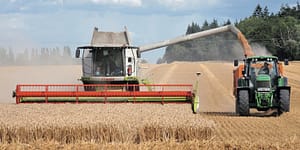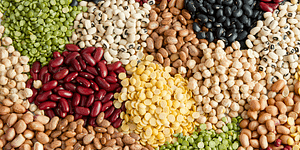About Time: What Makes Time Such A Valuable Resource

We’ve all heard of the phrases “time flies” and “time heals all wounds,” but what really is time, and how does it impact our lives?
The concept of time may be even more powerful than we think, especially when it comes to the money we save and spend.
The following is an excerpt from The Natural Order of Money by Roy Sebag. It has been adapted for the web.
The natural order, money, and time are intrinsically bound together, such that no part of this triad can truly be comprehended in the absence of the others. We will begin this chapter by meditating upon the third aspect of this tripartite dynamic: time.
Time is the condition in which we find ourselves situated. For this reason, it is the very essence of our shared human experience in the world. Temporality is the ontological medium in which we live, act and die; it is the medium in which the natural world grows, bears fruit and decays, in which flowers blossom, mothers age, and the sun sets. As we transition from the fleeting days of our youth to the mature years of adulthood, we learn that time is precious, that it “flies by”, and so we ought to spend it wisely. In the words of Walt Whitman, echoing the eternal analogy of Shakespeare’s Seven Ages of Man, “the powerful play goes on, and you will contribute a verse.”1 In the context of the natural order, the “powerful play” is the omnipresent force of time, and the “verse” is our individual life, manifest in our inward experience and our external actions.
Time: What Really Is It?

There are two basic facts or qualities about the nature of time which therefore appear immediately to us: (1) time moves forward; and (2) time is irreversible. No human effort can possibly change the directionality of time’s movement, just as no human effort can succeed in arresting time or physically returning to an episode of its flow which has already passed. In light of this basic philosophical exploration, we can formulate a definition of time which will serve us throughout this inquiry.
Definition I. Time. Time is the ultimate law of nature which saturates all things. It is universal, personal and qualitative, and it is forward-flowing and irreversible.
Understanding Time: Recognizing Reality

We begin by recognizing this ontological reality because all cooperation, life and activity take place within time. Contemporary economics tends to ignore the condition of our temporality by transforming economic activity into measurable and quantitative data which appear simultaneous and thus essentially predictable. Our method, by contrast, is the temporal method. When thinking about the economic system in the unavoidable context of time, we look more to temporal dependency, to antecedents and consequents, rather than to abstracted simultaneities. Before looking to what motivates an action within the cooperative system, we have to first look at what allows that action to occur in the first place. In other words, both the natural world and human action are subordinate to this reality of time. This understanding of our temporal condition will lead us to a greater comprehension of both the natural requirements and the generated products of human cooperation.
Recommended Reads
Recent Articles
Oxeye daisies are one of the most important plants for pollinators including beetles, ants, and moths that use oxeye daisies as a source of pollen and nectar. Instead of thinking about removing a plant like oxeye daisy, consider how you can improve the fertility and diversity of habitat resources in your home landscape, garden, or…
Read MoreThis long-lived perennial legume is used for forage and erosion control. Kudzu is edible with many medicinal uses and other applications. Pollinators of all kinds love its prodigious lavender blooms!
Read MoreMove aside, maple! We have two new syrups to add to the table. Read on for insights on tapping, selling, and eating syrup from walnut & birch trees.
Read MoreWhy is modern wheat making us sick? That’s the question posed by author Eli Rogosa in Restoring Heritage Grains. Wheat is the most widely grown crop on our planet, yet industrial breeders have transformed this ancient staff of life into a commodity of yield and profit—witness the increase in gluten intolerance and ‘wheat belly’. Modern…
Read MoreDid you ever wonder how leeks, kale, asparagus, beans, squash, and corn have ended up on our plates? Well, so did Adam Alexander, otherwise known as The Seed Detective. The following is an excerpt from the The Seed Detective by Adam Alexander. It has been adapted for the web. My Seed-Detective Mission Crammed into two…
Read More







